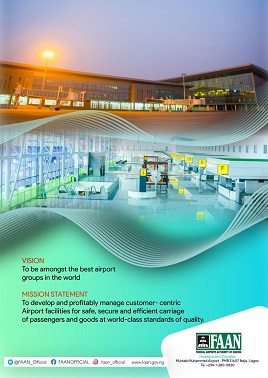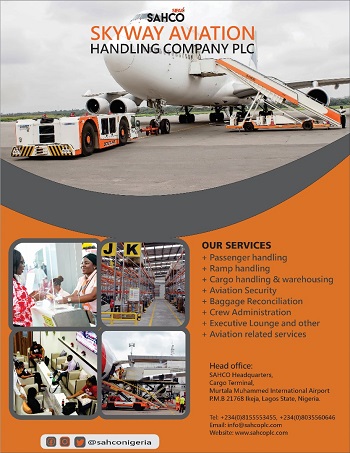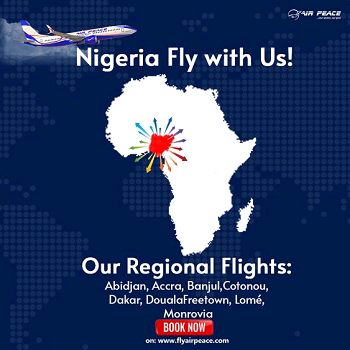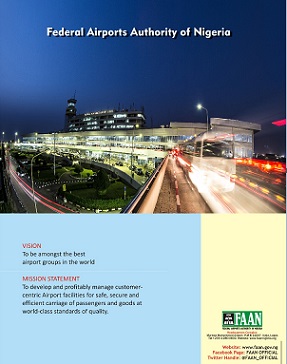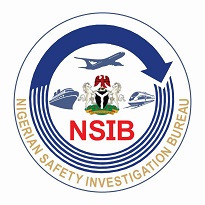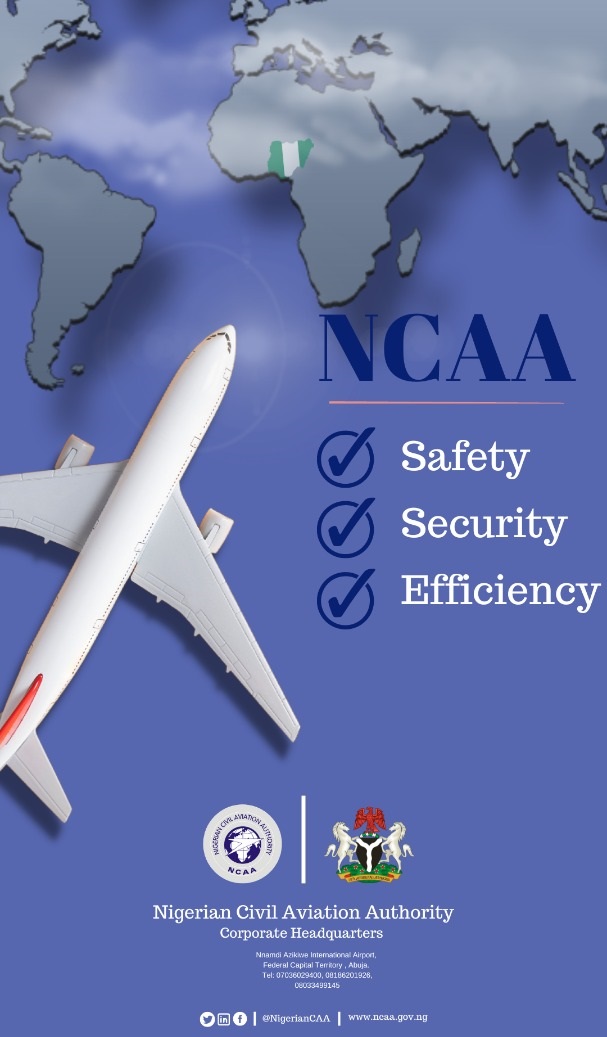
Captain Abdulsalami Mohammed is the rector of Nigerian College of Aviation Technology (NCAT) Zaria, the premier aviation training school in West African sub region. In this interview, he spoke on some of the achievements and challenges of the aviation training school since he took over as the helmsman. He also looked into the challenge of unemployment which its graduates, especially pilots, face and suggested how this could be successfully tackled.
Excerpt:
How did you get to being an International Civil Aviation Organisation (ICAO) Regional Training Centre of Excellence (RTCE), what were the processes and do you think you have the capacity of being an RTCE?
One of the requirements before you are granted that international status by ICAO, you need to meet certain criteria. This journey was started by NCAT 11years ago when we became members of the TrainAir Plus, before you become a member of TrainAir Plus there are also criteria you need to meet which included access end of training facilities and personnel. The global aviation office sent auditors from ICAO to Zaria to come and access, they came with their checklist and of course typically there were some gaps and we were given time within which to close these gaps, and we were reassessed and it was determined that we met the requirement to be a member of the TrainAir . The next level was the change in nomenclature now it’s called TrainAir Plus and also that requirement was for the institution to develop a standard training package which we did in 2013 and in 2015 we started the process of getting this RTC status and that required a lot of things, including and not limited to developing extra training packages, at the time Nigerian College of Aviation Technology (NCAT) signified interest to go for the RTC, that was when the criteria was changed, now they needed the applicant to develop a minimum of three standard training packages and we had to do that and then train an internal validated and for that training of an internal validator we had to develop another standard training package. So with that, NCAT was able to satisfy the requirement of being awarded RTC Status. To answer your question, yes we have the capacity, we have the plans to increase that capacity because by being an RTC opens a lot of opportunities for NCAT there will be a lot of training at NCAT and it will improve the requirement that we need to keep this status. We have to keep increasing or improving on our facilities and one of the things we need to meet these criteria is to modernise our classrooms. If you go to our classrooms you will see that there are modernised and standardised to meet ICAO requirement complete with projectors and interactive boards. What we need to do in anticipation for the increased demands for courses is you build more classrooms, office accommodation and hostel accommodation and all this in anticipation of our approval and we made allowances for in our 2017-18 budget and we are fully ready to meet the challenges and opportunities of this new status that NCAT has.
Is there a way NCAT can issue degrees in aviation related courses?
Already NCAT Offers post graduate Diploma in Aviation management, we have identified the need to have this, and anytime we interact with airline owner we stress the need for them to train people in aviation management because we have a lot of technical people who are involved in running airlines or administrative functions but they lack the proper training in aviation management. So we are already conducting these courses and we hope to introduce additional courses in the future. We are also talking to other educational institutions so we can collaborate with some of them both in Nigeria and outside.
There is an availability problem with the kinds of fuel you power your training aircraft with, are there plans put in place to improve availability?
Availability and cost of Avgas has been a challenge for any operator of piston engine aircraft, which was why the decision was taken by NCAT management long before I came to replace our Tampico aircraft that use Avgas to the diamond aircraft that uses jet A1. We already have taken delivery of one diamond 42 aircraft We have more in order, the process is slow because of budgetary allocations and releases but even today we discussed this with the house chairman on aviation and she agrees there is need for us to have increased allocations so we can bring in more aircraft instead of one at a time. If we are able to re-fleet within the shortest possible time we will not be facing this challenge of availability and cost of Avgas. We bought some and took delivery of some consignment of Avgas last week and we have enough stock to last us quite a while.
What are the benefits of being RTCE?
Being a RTC allows the college to develop training programs for all the ICAO Annexes. So we can develop trading programs in Aerodromes, air transport, facilitation, environment safety, security all of them so it opens a lot of Windows of opportunities as we can develop these programs ourselves and anytime someone from any part of the world is interested and part of the ICAO TrainAir plus, they can utilise these programs and NCAT gets to benefit because we get paid anytime someone uses our training programs
Also Our instructors because they have been trained and certified by ICAO can be invited to conduct training in any part of the world. My deputy here had gone to conduct training in Singapore and that goes to show the level of confidence the ICAO global training office has in NCAT.
As you are aware, in the last three years NCAT has won an award for the most trained ICAO instructors and incidentally we are also the institution with the highest number of ICAO accredited courses in the world in two years now. In ICAO circles NCAT is very well known…This RTCE that we have covers the flight school and the air traffic services and communication school those were the two schools subjected to that audit.. The flying school is a department made of flight training school, ground school, cabin crew and flight simulation, flight dispatch training they are all under flight school.
Even the aviation management school conducts ICAO accredited course right now we have the PIC Course in place, which is an ICAO course the participants actually register with ICAO, some of them pay through ICAO, we have two participants from the republic of Sudan who are currently training in the school, just three week we had two from Mauritius who were training for airport emergencies procedures. I cannot tell you off the top of my head all of them because as you know, the college is made up of five schools and these schools run their own programs and aviation management has the highest program as they run short courses. And all programs are approved by ICAO or the NCAA.
How many projects do you plan on carrying out and do you have the funds to do this?
We have a number of projects we want to carry out and we cannot have all of these projects on one budget period so for 2017 we had provision to build additional classrooms and a 250 bed student’s hostel and also upgrade of classrooms this is in addition ongoing projects. Also in our five year development plan and we have made provisions for increase in these classrooms and office space and hostel accommodation. For this year we have had some of these appropriated but as you know releases have not been much and so we have not started any new capital projects.
You spoke on acquisition of new aircraft earlier, how many are you looking at?
As for the aircraft, when the contract was awarded it was for 20 -aircraft, five DA-42 which are the multi engine and 15 DA-40 which has single aircraft. At the time of award, the exchange rate was about N155 to the United States Dollar right now it’s over N300 to a dollar and so the cost rate of the contract has doubled in Naira terms because we are given the money in naira. In dollar terms the cost of the aircraft is the same but in Naira terms it has doubled. So with what is released it means the time it will take to deliver them aircraft has doubled. Now, aircraft manufacturers do not start manufacturing process until you have dropped the deposit and 2016 was particularly difficult because of the recession and non-releases. It was not easy to get money to bring this aircraft that’s why we could only get one. Now this year, we had wanted to bring additional aircraft, we decided we should bring in the single engine DA-40 but the manufacturers told us that they were relocating their production line from Austria to Canada and would not be able to produce for six to seven months but will start producing in six to seven months in Canada and then they told us that rather than pay for one or two, it’s better or more cost effective to increase the number. It will be cheaper for us to reduce the cost of transportation because the aircraft will be shipped in a container and reassembled in Zaria so based on that we decided that this year we will not bring in anything but next year we will bring in a larger number and start meeting the objective of phasing out these older aircraft. And we are looking at a minimum of five and if possible we may go for 10 but a minimum of five.
Does NCAT plan to start Type rating pilots who graduated from the college?
As you know as a pilot you have to have a type rating before you fly any aircraft, when you get out of school you are typed on the kind of aircraft used in the flying school that is what is stamped on your licence when you get a job your employer will now give you a type rating on the type of aircraft your employer operates. So NCAT cannot provide type rating for all the kinds of aircraft in Nigeria but what the management of NCAT did a few years back is they identified the most commonly used aircraft in Nigeria which is the Boeing 737 and used that to purchase a 737 simulator that would be installed in Zaria. This simulator project was also affected by the foreign exchange issue because it was also a dollar denominated project so the cost has doubled but I am glad to inform you that NCAT has made substantial payment for this project and work has commenced on the building that is going to house the simulator. We had wanted to use an existing building that is housing the current simulator that we have but the CAE manufacturers of the simulator we are purchasing have told us that building needs to be modified to house the simulator. When we assessed it we decided rather than go through the trouble of modifying the existing structure we should build a new one and so we have gone far and by Gods grace we hope that by the middle of next year the simulator will start its journey from Canada to Nigeria. The simulator has been built and warehoused. We didn’t complete the payment but we have now made substantial payment of about 70% payment and so very soon we will have the simulator installed in Zaria and when we do that we will be offering Boeing 737 type-rating as well as recurrent training for the pilots which is a huge drain on the foreign exchange of the airlines and the country. Even this morning the managing director of Med-view was asking when the simulator be ready so their pilots can start the recurrent training as they are spending a lot of money, as you know for commercial operators pilots they will go for the recurrent training every six months, so we hope to capture that market and start having that training done in Zaria . When the national carrier does take off eventually, we hope to partner with the national carrier and should they be operating Boeing series of aircraft, we have a ready facility that they can use to train and then we Also have made provision in the building for expansion to take additional simulators. The facility is one that can house four simulators.
What is hindering the simulator’s arrival?
What the CAE said is, they will not ship the simulator until the building is ready because they do not want the simulator to just sit in containers so we have asked the contractor to expedite work and the only thing that would delay the project is the release of funds but it is our firm believe that this project will see the light of the day before the end of next year.
When will you take delivery of this simulator?
It would take at least six months to build the structure then before CAE would take time to ship the simulator and even the transportation of e simulator will be a big issue because it’s a wide load, it is going to come in wide pieces so there is going to be some specialized form of transport to bring the parts from Lagos to Zaria we considered air lifting from Lagos but were told that it would not fit into a conventional aircraft it can only go into that huge Antolov and we cannot afford that.
What Challenges, other than finance, does the College face?
You asked me not to talk about funding because everyone talks about funding; well you can’t run away from funding. As you know we are a government agency and most of our courses are subsidised by government to make aviation training affordable and reachable by the ordinary Nigerian. So we get part funding from the government and also run on our internally generated revenue which is made up of 7 per cent of the 5 per cent Passenger Service Charge (PSC) and whatever we are able to generate from school fees.
One of the challenges we have is that a lot of government agencies are not even aware of our existence, they don’t know what we offer so you find them sending students abroad to go and do courses run in Zaria which are four to five times what it costs to do the same courses here. I can tell you for a fact that right now, virtually on a weekly basis we get an application from a student who started his training abroad and came back home, they couldn’t complete because of lack of funds and then they come to us to complete that training. So if there is increased patronage from our agencies, from organizations and from government,that would greatly improve our Internally Generated Revenue (IGR) and so NCAT would be better positioned to carry out its programmes without heavily depending on the government. One day we will even be able to declare a profit. This was highlighted during the last conference national policy on Sokoto. It was identified as one of the factors affecting NCAT. Apart from the classrooms, hostels we are building, we need additional infrastructure, still has to do with money. Every budget year we have a ceiling, we have to keep within the ceiling so that limits the number of projects we can carry out. You know we have NBTE accredited courses, we do national and higher national diplomas in engineering we are in the process of establishing and equipping laboratories; so all these are part of the things we are doing to expand the capacity of NCAT. Things can go faster with more funds but we are taking it easy, one at a time subject to availability of funds.
Is there no way they NCAT can reach an agreement with employers to aid pilots get jobs with them as there are hundreds of unemployed pilots in Nigeria?
Unemployed pilots; this is a subject that is dear to me because every day I get a call from someone who wants his son employed or I get a question that ‘why would I bother to come out and train as a pilot when there are no jobs. As you know we have about 300 unemployed young pilots in the market and the airlines are reluctant to employ and train them because they claim that when you train some of them they run away. This is the issue the ministry, the AON is discussing it is receiving government attention but NCAT cannot get involved in seeking jobs for its graduates, we are a training institution. We can train people, we can give references when you finish but we cannot get involved in getting jobs for our graduates. I keep saying that, our young pilots need to get involved in general aviation. The practice worldwide is that when you graduate from a flying school such as Zaria, with about 250/300 flight time on a light aircraft, you go into general aviation, some of them stay on with the flying school to gain experience and build flight time, that’s how I started. Some of them then go into general aviation and fly light and medium aircraft to gain experience before they now eventually qualify to go for Airline Transport Pilot Licence (ATPL) before they join commercial airlines, this is the practice in the United States, this is the practice elsewhere. Unfortunately for us every pilot that comes out wants to go and fly big jets, it is more glamorous to fly passenger jets but the airlines cannot absorb everybody. If you recall, when Virgin Nigeria was set up in 2005, virtually every pilot in Nigeria applied to Virgin Nigeria, I was one of them and Air Nigeria was able to pick whoever they wanted and so they picked those they wanted and retrained them completely regardless of the background. Shortly a few years after Virgin Nigeria, Arik came on board and they also employed these other pilots that didn’t go into Virgin Nigeria. More airlines started up and that was when the industry started recovering and then Arik developed rapidly, they were having up to 30 aircraft at one time and so they were able to mop up all the experienced pilots that had been in the industry then airlines had to look elsewhere and that was when they started employing these young inexperienced pilots and began training them. That training comes at a cost, training an inexperienced pilot when you are carrying 150 passengers is not ideal, normally in flight training when you train a pilot, he learns by trial and error by taking him into the air and showing him how things are done and the. You give the controls back to him and say ‘now it’s your turn show me what you can do’ and he will try to do it, make mistakes. You allow him to make some mistakes as long as the safety of the aircraft is not compromised so that he can learn from his mistakes,that is how we train pilots. But when you now have 100 sometimes 300 passengers sitting in the back and you have someone in training, you don’t want him to make mistakes. Otherwise those passengers may never fly with that airline again. So it is not the ideal training environment. So you find that the training takes too long and it is expensive and at the end of the day the airline says ‘this man is not trainable’ and they stop training that is why a lot of airlines are reluctant to start bringing people, that is my opinion and I have said this before and the social media was awash that the rector said such things about pilots but I believe the key to this problem is improving our general aviation, if you count the number of private jets we have in Nigeria, if they can employ on each private jet, at least one of these unemployed pilots at a giving time that will create jobs.
On the average for normal operations for a light user they have four pilots or three. Two working and one on leave multiply that by the number of pilots that is a lot
These young men are unite cheap to employ and it is easier for them to handle such aircraft, in fact it is the best training ground for them, it’s more difficult to work private aircraft than it is to work on a commercial aircraft because when working on a private aircraft you are a one man show, you are the pilot , you are the dispatcher you fuel the aircraft yourself, you are the accountant whereas in an airline you have people who do all these for you so it’s a good training ground for them and so my opinion is this sector should open up to these young men and absorb them and when they gain the experience they can join the airlines. And the creation of a national carrier will also create employment opportunities for these young men, I am not saying that the national carrier will employ them immediately but you find out that a lot of our experienced pilots when the national carrier is coming they will leave where they are and try to join the carrier thereby leaving openings for these young people. So really the national carrier will be the catalyst for change and growth in our aviation industry.


